How I Invest My Money: Part III
This is the last of these posts.
In Part I, I covered insurance and risk management. In Part II, I covered investing. Here I’ll review how we spend, save, and what we do wrong. Then I’ll wrap up with what’s changed and why.
Below is exactly what I wrote in 2021. There are a few outright typos, but I won’t fix them.
Comments from Vince in April 2021
Finally, when it comes to our monthly cash flow, we are not budgeters. I hate Excel and I hate spreadsheets (I have to look at them all day, every day, after all). We are automators, though. At the end of every month, after all of our expenses and savings, there is always a tiny bit left over. We set a really high goal and try to allocate 30% of our income to investments, accelerating our mortgage payments, and our insurance premiums. Sometimes, when Carley spends too much time at GardenWorks, for example, we might go a bit negative, and that’s when I get worried, so we spend less in the next month to break even.
Oh, our mortgage is our only debt, but we pay for everything with our credit cards and we pay them off at the end of each month. We both have lines of credit available but have never dipped into them ever, but we like having them just in case. We consider those our “emergency funds.”
It’s important I share all this with you because it’ll give you a good look into some of my inherent biases as we work together.
Here are a few things I know we do “wrong.” We shouldn’t accelerate our mortgage payments and should instead toss a lot more into our TFSAs. We shouldn’t own so much life insurance and instead toss those saved dollars into our TFSAs. According to the “evidence-based” research, we shouldn’t own those two mutual funds, and owning stocks you “use” isn’t proven to be the best way to invest. We shouldn’t own ETF of ETFs because they have a slightly higher fee than if we owned all of the underlying ETFs individually instead. But, even with all those considerations, Carley and I will always come back to our values: what is the most important thing to us from a financial perspective?
Being mortgage-free sooner, making sure Carley is OK if I die (and vice versa), not having to worry or think about our investments day-to-day (I do enough of that for my clients), and focusing on what we can control (our cash flow and taxes) is the most important thing to us.
Comments from Vince in December 2024
Nothing from the first two paragraphs has changed, but quite a bit has changed on the mortgage front, and as noted in Part II, I now firmly believe in “evidence-based” investing.
What’s changed on the mortgage front?
We no longer want to be mortgage-free sooner. We just want a smaller mortgage. I can already hear some of you shouting from the rooftops but hear me out.
In 2021, we wanted to be mortgage-free as soon as possible. It felt like the most secure financial move – paying off the house meant no more debt and no more dealing with the bank. But over time, we realized something very straightforward: our investments compound, but our mortgage doesn’t.
Here’s what changed our perspective:
A dollar invested today has more value than a dollar invested tomorrow. Investments grow exponentially. If our investments earn 7.2% annually on average, they double roughly every 10 years. That’s $100,000 turning into $200,000, $400,000, $800,000, and beyond. There is risk associated with investing, nothing is guaranteed. We know that, but history is on our side, and as I’ve mentioned elsewhere on this site, the end of the world only happens once.
Mortgages don’t work like that. If we make our payments, the balance decreases steadily, with no surprises. Our mortgage doesn’t compound against us. Quick note here: as mentioned earlier, we’ll only ever choose fixed rate mortgages, so unlike some variable-rate mortgages, our mortgage really can’t compound against us.
By focusing on building tax-free assets (like our TFSAs), we’re taking advantage of compounding growth. One day, those investments can pay off the mortgage entirely and then some – without us missing out on decades of market growth.
We still understand the appeal of paying off a mortgage quickly – It’s about peace of mind and doing away with a large monthly expense. But for us, growing a tax-free investment portfolio that can wipe out the mortgage in retirement (and then some) feels even more secure.
It’s not about what we think – it’s about what we’re doing. I’m sure our views will change in another four years. I hope they don’t, but you never know.




